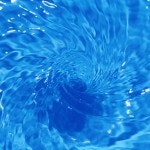Draining Swimming Pools

October 7, 2024 By Katie Roundtree
If you live in South Florida, odds are you have a swimming pool. One of the reasons we live here is the great climate where you can enjoy swimming year-round. If you have a pool, it is also critical that you maintain the structure and treat the water to keep you and your family healthy and safe. From time to time, it may be necessary to drain your pool for repairs. Whether the reason is cleaning, water changes, or just lowering water levels, pool draining is a common activity.
Disposal of pool water into a storm drain is harmful to the environment. Pool water enters the storm drain system untreated and may contain chemicals that can harm canals, ponds, lakes and wetlands, as well as the wildlife living in and around them. Chlorine, bromine, algaecides, biocides, water conditioners, stabilizers, and other chemicals in pool water are toxic to fish and other aquatic life.
Here are some things to remember about draining pools:
- Only drain your pool when absolutely necessary. Avoid draining/backwashing your pool during periods of drought and during significant rainfall events. Do not drain your pool when watering restrictions are in place.
- Leave the water in the pool for at least one week without adding chlorine or other chemicals before draining. If you can’t wait that long, use a chlorine neutralizing chemical found at most pool supply stores. Please consult your pool supply company for further information.
- Test the water before discharging to ensure that the chlorine levels are safe. Also ensure that the pH levels are normal (6.5-7.8).
- Drain the pool slowly over a large pervious area, such as your lawn, before letting the water drain into a storm drain. The water will filter slowly and evenly through the soil. Control the rate of discharge across your property to avoid erosion and nuisance conditions for neighboring properties. Nuisance conditions such as the creation of odors, mosquito breeding conditions, or flooding can occur when water is ponded for a prolonged period.
- If your pool contains algae or other organic matter (a black film), collect the algae and dispose of it in your normal trash. Decaying organic matter lowers the oxygen content in the water and should not go into the storm drain or any wetland area.
Please keep in mind that there is a direct link between what we do around our home and the water quality of our canals, ponds, lakes and wetlands.
